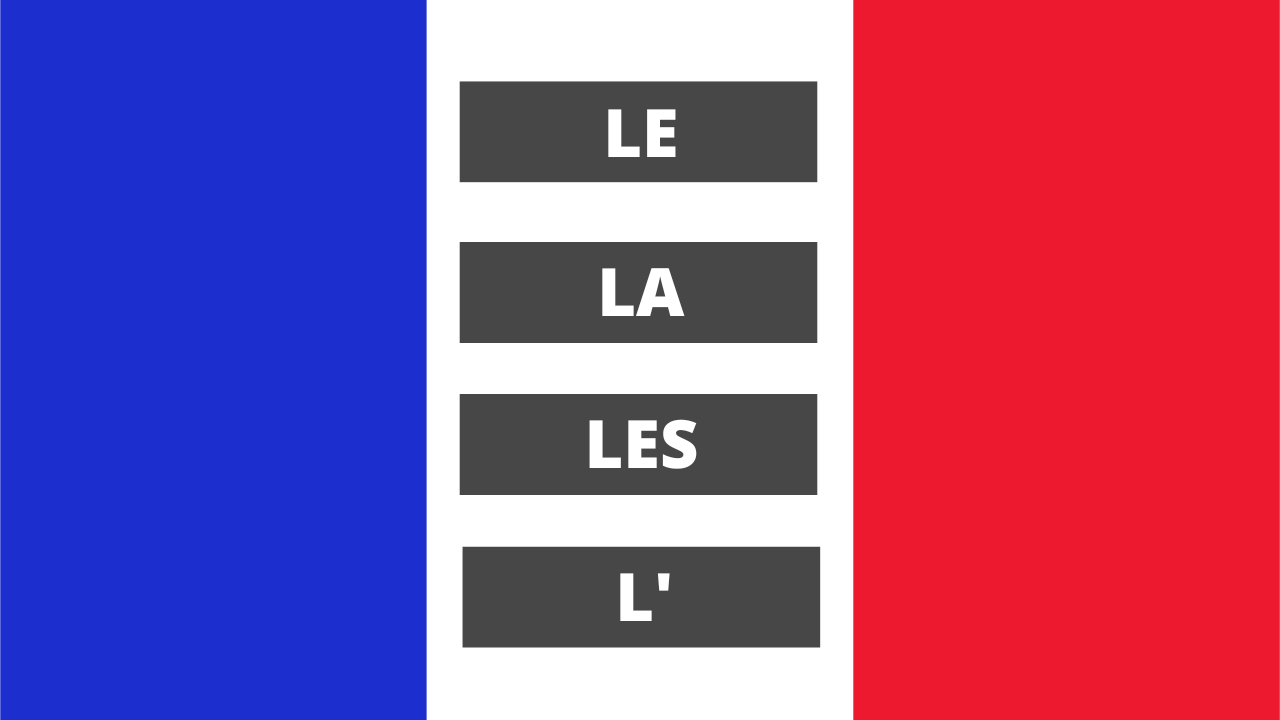Menu
Close

French Definite articles: Le La Les L’ – change depending on if the noun is masculine, feminine, singular, or plural. We use them to talk about specific things or people. They translate to the in English.
To know when to use them properly, you need to know if the following noun is feminine or masculine. Check this rule here for the gender of nouns.
When a word starts with a vowel or a silent h, LE and LA become L’. When the article is L’, it’s impossible to know if the noun is masculine or feminine. Make sure to use “un – une” as much as possible when studying vocabulary.
Find more French grammar lessons, including videos and exercises, in my Complete French Grammar Course.
In French, short words such as LE – LA – LES are pronounced fully.
Le / L’ – the
Le café – the coffee
L’homme – the man
La / L’ – the
La limonade – the lemonade
L’eau – the water
Les – the
Les cafés – the coffees
Les hommes – the men
Les – the
Les limonades – the lemonades
Les eaux – the waters
When preceded by à or de, the articles change to au, aux, du, des, à la, de la, etc. We will look at this in more detail in a lesson coming soon.
French definite articles are used mostly the same way as in English:
With abstracts nouns for things that you can’t touch:
With concrete nouns (things that you can touch) when talking about them in a general way:
With languages and school subjects:
With continents, countries, and provinces:
With quantities and prices:
With dates and days of the week. For days of the week, we only use it to talk about something that you do regularly:
With parts of the body:
After the verb parler, and before a language, we can either have le or nothing:
French has two types of h, silent h and aspirated h.
When h is silent it acts as a vowel. Therefore, we use L’. Make sure to study the gender of the noun because it’s impossible to tell with the article L’. Here are the most frequent nouns starting with a silent h:
When h is aspirated, it acts as a consonant. In this case, we use Le or La. Here are the most frequent nouns starting with an aspirated h:
To learn more about French and When to use LE LA LES, check out my 800+ Free French Learning videos on my YouTube Channel where you can learn everything about French!

8 Responses
Thanks for this merci pour ça
My pleasure Alex 🙂
Bonjour Dylane,
I am very happy I ran across your website and YouTube channel! I have learned to read/recognize some French through my work over the years (I work at a company with offices and assets across Canada, including Quebec). My goal for 2023 is to become much more fluent in reading and writing to support my new role at work, and I know your materials are going to get me there. I’m so excited to get started!
Vanessa thank you so much for your comment. It’s a fantastic goal for 2023! Try to practice daily, even if it’s just 10 minutes. Did you get my self-study guide? It could help you. It’s on Freebies 🙂
I want to know using of en,chez vs à and dans.
I will have a blog post about it but I have videos on my YouTube channel if you want 🙂
Thank you this was very helpful!! (:
You are welcome 🙂